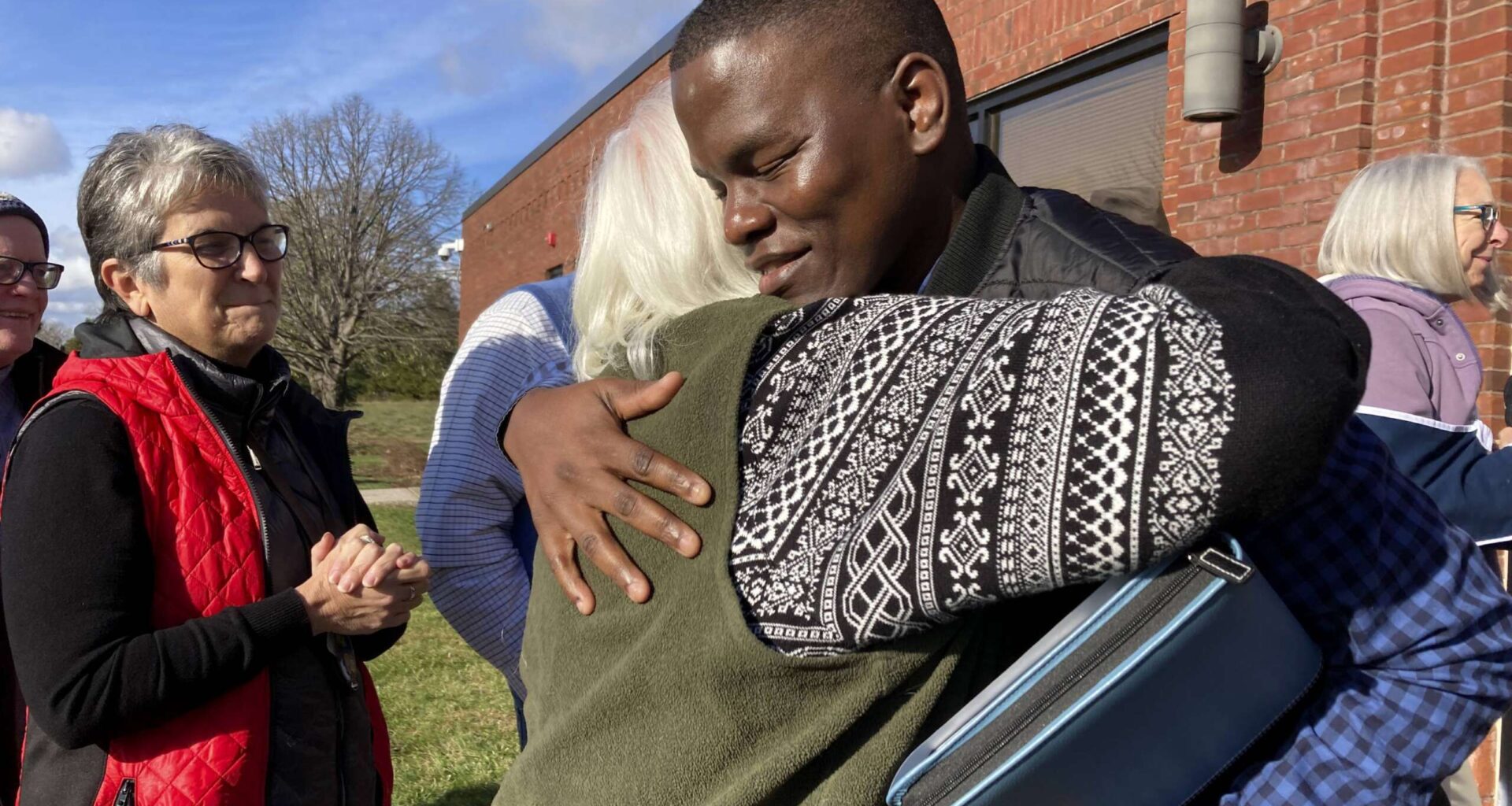One non-profit is stepping in to meet the mental health needs of those displaced USAID workers
“After the closure of USAID in the country — we normally think big and act fast — we started providing psychological first aid to former staff,” Lucy Onen said.
July 2, 2025 7:50 pm
7 min read
The Federal Drive with Terry Gerton provides expert insights on current events in the federal community. Read more interviews to keep up with daily news and analysis that affect the federal workforce. Reach out to Terry and the Federal Drive producers with feedback and story ideas at FederalDrive@federalnewsnetwork.com.

]]>
Interview transcript:
Terry Gerton I’m excited to hear what you’re working on there with StrongMinds in Uganda, especially with USAID. So could you start for us by describing the situation for USAID workers who were in Uganda and the challenges that they’ve been facing with the disruption in USAID programs?
Lucy Onen I was the former USAID chief of party for mental health integration activity under StrongMinds. And my colleagues and I, we are all distressed. We’re very anxious. And of course, people became so stressed because they never anticipated the stop-work order. So this is still continuing with my colleagues, but fortunately for me, StrongMinds Global had to realign and re-strategize and recall all the staff who were working. And I’m fortunate to have been given opportunity to become the country program manager. And there are many things happening right now in the country as far as the former workers or staff of USAID and their partners are concerned. One, currently they’re struggling with depression. They are struggling with stress. They’re struggling with anxiety and uncertainty, because they were laid off at the time they least expected. Just like you’re just beginning the year and you are told to go back home. And that was a striking moment for them, a turning point in their careers and in their lives as well. So because of that, they went into a psychological mud. Some of them were numb, some of them were reacting in ways that other people, ordinary people could not understand. And therefore, right now as I talk, those who have been laid off completely in a state of redundancy because from a very busy schedule — and you know USAID, we run always on time — so amidst the busy schedule and that abrupt change in the lifestyle and career, they’re rendered redundant and if I give them a phone call, “hey chief how are you doing?” They’re like, “Lucy, I don’t know what to tell you, but thank you for your support and continuously checking on us.” So a lot of redundancy because they’re not in any gainful engagement or activity. And then also it affected the government itself because USAID had a big hand in supporting the health you know the health system or health sector. And therefore we see a lot of people affected, even those who are receiving medication for HIV, some of them have resorted to sitting at home because they thought there was no possibility for a refill, and because of that, suppression is becoming a problem. So this is the general situation in the country.
]]>
Terry Gerton Can you tell us a little bit about how USAID came to be in partnership with StrongMinds Uganda and what the relationship is there?
Lucy Onen USAID, we had an informal relationship, because we have several programs and in our programs we believe in partnerships. So the first one of the partnerships we had was iCare, which was focusing on adolescents living with HIV/AIDS. And we proved concept that integration of mental health into HIV/AIDS can improve overall outcome. So that concept was picked up. And secondly, we’re the leading mental health organization in the treatment of depression and anxiety. And to add onto that, we are the first and leading organization, I think, in Uganda to integrate mental health into different agencies programming. We were working already with the local organizations and international organizations to integrate mental health into education, to integrate mental health into health systems, to integrate mental health in to economic growth and development. So this gave us an opportunity to be chosen out. And besides, we have a very good working relationship with the government of Uganda. So we work with the nine ministries like ministry of health, ministry of education, gender, labor, and social development, and others. So that gave us opportunity to be chosen because we have a proven work experience in that area.
Terry Gerton I’m speaking with Lucy Onen. She’s a program manager at StrongMinds in Uganda. So what kind of support does StrongMinds provide to the folks who were working with USAID?
Lucy Onen Thank you so much, Ms. Terry. In our previous work, when we started the implementation, we were providing technical support, us being the mental health experts in the country in the scaling of treatment of depression using a very specific model called the interpersonal psychotherapy for groups. And that was one of the biggest things that we were offering to the IPs. But also after the closure of USAID activities in the country, we normally think big and act fast — we started providing psychological first aid to the former staff of USAID and their partner agencies. We also provide one-on-one treatment therapy to some of those who would like to maintain their anonymity, they do not want to be exposed because they are of different calibers. And of course, personally, as mental health experts, we have also provided direct support to the USAID mission in the country, taking them through the transition process and how they can overcome some of the challenges and build psychological and emotional resilience. Besides, some of them are participating even in our six-week therapy. So that is how we are trying to support the former USAID staff and their networks.
Terry Gerton Thank you for that because I think it’s so important. So many of our federal workers are experiencing similar situations, whether it’s in the United States or they were posted abroad. What recommendations would you have for other agencies in terms of helping their displaced workers take care of their mental health?
Lucy Onen Well, the most important thing is for us to recognize that mental health is key in whatever we do, and it is a multi-dimensional or multi-sectoral issue that we need to focus on. Before even the discharge of all this stuff, there should have been a process for them to transition. And now that they’re in a state of redundancy, there should be continuous emotional support. And that is what we are providing right now. Sometimes they are encouraged to have the support group, because they were working as a group, a group of USAID, and they were detached probably from their respective communities. So such interactions can be remotely or physically, but they have to continue to take care of their mental health. And any other opportunity for engagement should be given to them even after post-USAID engagement.
Terry Gerton That’s great advice. What is next for the relationship between USAID and StrongMinds there in Uganda? You kind of brought us up to speed on where you are. What are you looking at for the future?
]]>
Lucy Onen Our relationship remains open. We always appreciate what they have offered to us. We also appreciate how they have supported us. And up to now, we still have an open communication. So our communication remains open, we still receive some emails from them because they have not completely closed the mission here. In terms of continuous working relationship with the USAID, we have resorted to scaling in all the former USAID districts. So we are taking over their catchment areas and scaling the treatment of depression in those areas. And also we have devised a new approach, which we have rolled out, which is the model district approach. Because of the dwindling resources and yet we want to scale in all those previous districts that we had planned, here we strengthen the government systems and structures to leverage on them to provide services to the community. And I think this is a big thing for us so that we can try our best with the minimum resources that we are receiving from Echidna Giving that is focusing on the young people and also the GCC, the Grand Challenge grant from Canada. So all these and other individuals that are supporting us to ensure that we continue to work. And with the support of StrongMinds Global, we are able to re-strategize and set priorities to continuously scale the treatment of depression at the lowest cost possible.
Copyright
© 2025 Federal News Network. All rights reserved. This website is not intended for users located within the European Economic Area.

